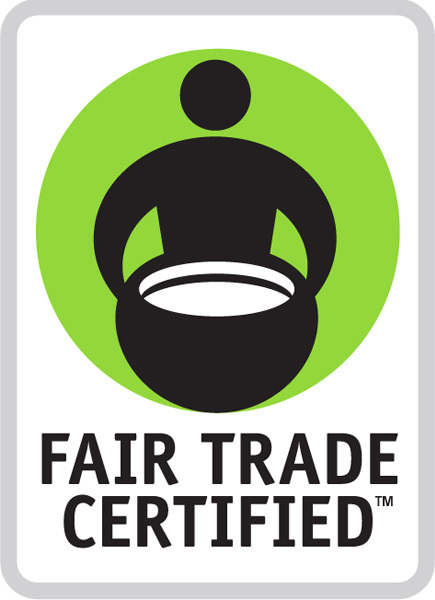Peru: The Perfect Merge of Quality Coffee and Sustainability

Peru: The Perfect Merge of Quality and Sustainability
Hand-crafted with an artisanal flair describes both the effort and the quality of beans that are originating from Peru. As much as 95% of the producers are small-scale family farmers, each with about 2 to 3 hectares of land. These farmers are committed to their production, focused on nurturing some of the highest quality beans in the market today. However; the combination of extreme isolation, unpredictable weather and market patterns paired with limited communication kept these quality beans in hiding.
Today, the story in Peru is quite different. “ In the last few years, Peru has really emerged as a specialty market with quality on the forefront,” said Ben Corey-Moran, Director of Coffee Supply, Fair Trade USA. “And a great example of an origin that requires real partnerships to build a bridge to the future.”
The largest producing country of Fair Trade Certified™ coffee in 2013, Peru imported 43.7M lbs of Fair Trade USA certified coffee, up 20% from 36.3M in 2012. Fair Trade USA helps foster the connection between rural farmer and buyer, ensuring that quality Peruvian coffee can be appreciated worldwide.
Quality and sustainability are an integral part of Fair Trade cooperative Cecovasa’s production, shared Beltrán Apaza, sales manager, Cecovasa. Research laboratories (partially funded with the Fair Trade premium) that are focused on quality and quality control are an essential part of their coffee production plant. Their work on quality has not gone unrecognized, Cecovasa has won the National Peruvian Quality Competition six times and received the SCAA coffee of the year award in 2010. These national and international competitions have allowed the cooperative to enter into niche markets.
Their focus on quality is not only applied internally but also readily shared with other cooperatives. Currently, Cecovasa is working with a group of Fair Trade farmers in Haiti who have requested production support. Cecovasa welcomed the Haitian coffee growers with open arms, taking the time to discuss how to develop a quality coffee. When asked about the education exchange, Apaza humbly admitted that there really was no question whether they would impart this information. “It’s a principle of cooperativeness, exchanging experiences and teaching them what we know about quality coffee,” said Apaza.
Education and training has not only helped develop superior coffee but has recently assisted farmers with coffee leaf rust. The overall impact of coffee leaf rust in Peru varies, affecting anywhere from 40% to as much as 60% production. To help mitigate this potential loss, Fair Trade USA awarded grants to two Peruvian cooperatives. One of these cooperatives was Cooperativa Agraria Cafetalera y de Servicios (CAC) Oro Verde. Hildebrando Cárdenas Salazar, General Manager, CAC Oro Verde shared that the grant was distributed to several areas including direct support to producers impacted by coffee leaf rust, education on integrated plant management to investing in future research.
Supporting their communities is a critical piece to the sustainability efforts that continue to happen in Peru. CAC Oro Verde directly applied this vision by allocating their fair trade premium to a training program focused on co-operatism, fair trade, environmental awareness and gender equality. “I have a long term vision or plan to give the proper skills for the people, that includes having training on how to be better person and how to have good families,” said Salazar.
OPTCO (Organic Products Trading Co.) has also applied this expanded vision of sustainability, with a focus on continued growth and development in Peru. Their work has not only looked at strengthening communities but their cofounder Gaylene Smith has expanded, creating the Café Femenino program to give women both a voice and income for their coffee production. “ Café Femenino changed the whole perception that women have no value upside down. It truly created a cultural paradigm shift that happened fairly quickly,” said Gaylene Smith, Founder, Café-Femenino Foundation and Co-Founder of OPTCO.
Fair Trade plays an essential role in ensuring the continued success of the Café Femenino program, providing a clear set of standards, structure and training to the women producers. “Fair trade is important, because it’s another validation, that this is real, and that the women are directly benefitting from the program,” said Smith.
Current Café Femenino board member and Program Director of the Café Femenino Coffee Program, Connie Kolosvary, shares that Café Femenino is a true example of sustainability in action. Both Kolosvary and Smith have seen how these women have changed from silent observers to actively expressing their ideas and opinions. “We get to this day of age and now what we see are these amazing intelligent women that are just full of grace,” said Smith. “You are taking people who have literally lived hand to mouth, to who are now making plans for year to year.”
Peruvian growers are finally connected to their coffee story, seeing how the beans that are hand crafted in their farms evolves into that coveted cup.
“Coffee for us, for us it is a dream and a reality, it is working mutually to help each other and organize ourselves,” said Apaza. “To us in Cecovasa, coffee is everything.”

